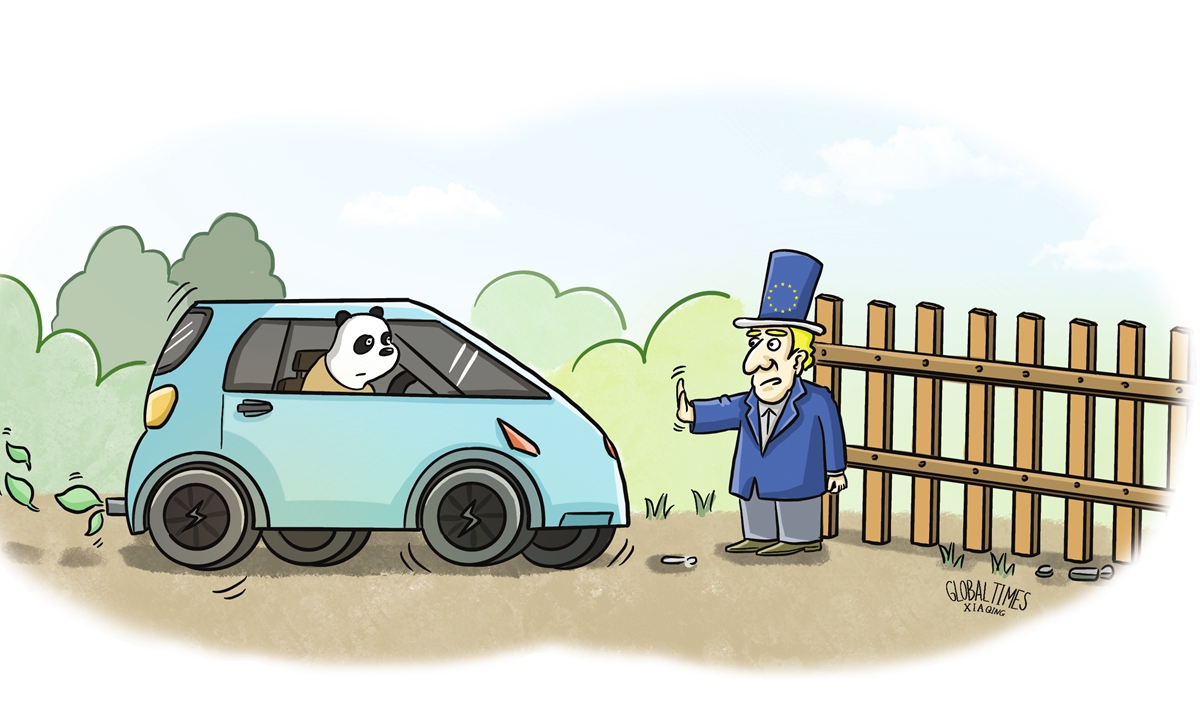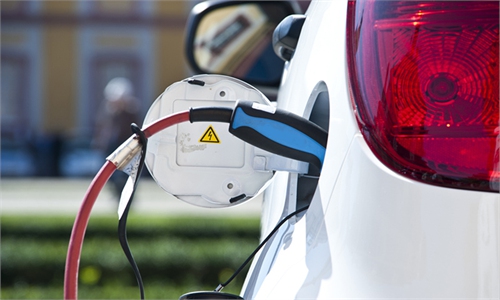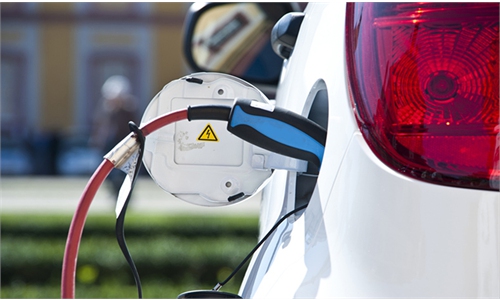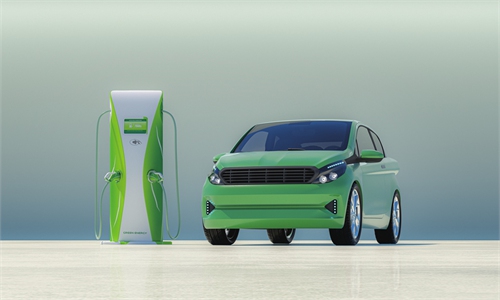
Illustration: Xia Qing/GT
Recently, European politicians have been clamoring for anti-subsidy measures against Chinese electric vehicles. The European Commission President Ursula von der Leyen called for a corresponding investigation in her annual State of the Union address, which received positive responses from French Minister for European Affairs Laurence Boone, German Foreign Minister Annalena Baerbock, and Minister for Economic Affairs Robert Habeck. For a while, the specter of trade protectionism seems to have returned to the continent that has been waving the banner of "open markets" for decades.In recent years, the EU has continuously dressed up its foreign trade policies with concepts such as "fair trade" and "open strategic autonomy." However, in practice, it has continuously promoted restrictive measures in various fields through policy-making and legislative processes, such as formulating "competition rules" and so-called due diligence for supply chains. This time, the EU's argument is that huge state subsidies are distorting the market and "Europe is open for competition. Not for a race to the bottom."
However, in the eyes of the outside world, the EU wields the tariff stick with its unilaterally determined standards and reasons, using the banner of "fairness" to impose unfair measures on enterprises and products of other countries, essentially aiming to protect its domestic companies and market. Meanwhile, the EU and some member states are vigorously implementing subsidy policies. For example, issued in February, the EU's "Green Deal Industrial Plan" significantly relaxes the regulation of industrial subsidies, and the French government's "Green Industry Act" proposes tax exemptions of 20 percent to 45 percent for renewable energy equipment, heat pumps and battery manufacturers.
In fact, the so-called actions of the EU are more driven by concerns over the impact of China's electric vehicle industry on its traditional fuel-powered car industry. European car companies have invested heavily in traditional car technology and industry centered on internal combustion engines, making it difficult for them to adapt to the massive industrial transformation brought about by the revolution of electric vehicles, hence their call for political measures. Tu Le, the founder of Sino Auto Insights, stated that the EU's initiation of the investigation "says as much about the lack of competitiveness of European EVs."
On the other hand, the EU's investigation into "distorting market subsidies" targeting Chinese electric vehicles is completely unfounded and untenable. Chinese companies began investing in electric vehicle research and development and industrial investment as early as 15 years ago and have benefited from China's high-quality development process, relying on continuous independent innovation, a comprehensive industry chain system, and a large domestic market. In 2022, China's electric vehicle market will account for 59 percent of the global market. At the same time, the claim that Chinese car companies are distorting the European electric vehicle market is a complete lie. In 2022, the market share of Chinese electric vehicles in the EU was only about eight percent.
The European industry itself has also expressed opposition and concerns about resorting to protectionist measures to seek competitiveness. Ola Kaellenius, CEO of Mercedes-Benz, stated that "if we look at the success of the WTO over the last 30 years, globalization, reducing trade barriers and promoting free trade have driven an enormous amount of economic growth and wealth generation," and companies oppose using political means to undermine the system centered around WTO rules.
For the EU, the pursuit of so-called trade fairness through protective measures is likely to backfire. In recent years, the EU has implemented various measures in the field of trade with China, not out of genuine economic considerations but rather as a result of its increasing emphasis on China as an economic and systemic competitor and adversary. These actions, driven by political bias, are bound to create a gap between the vision of cooperation and mutual benefit among enterprises. From the perspective of current industry development, the EU's initiation of anti-subsidy investigations against China is baseless and will only unilaterally increase the risk of trade disputes and escalate tensions between China and the EU.
The visit of Valdis Dombrovskis, Executive Vice-President of the European Commission, to China for the high-level EU-China economic and trade dialogue reflects the EU's desire to continue dialogue with China in the economic and trade fields. However, at the same time, the EU is preparing unilateral measures against China's electric vehicle industry, which is likely to raise doubts about its sincerity. The EU should realize that hoping to gain an advantage through "playing cards" and creating leverage will not bring benefits to the game but rather push the existing mutually beneficial relationship between the two sides toward a worse future, ultimately imposing unnecessary costs on its own economy and even its green transformation process.
The author is a research fellow with the Institute of European Studies, China Institutes of Contemporary International Relations. opinion@globaltimes.com.cn



